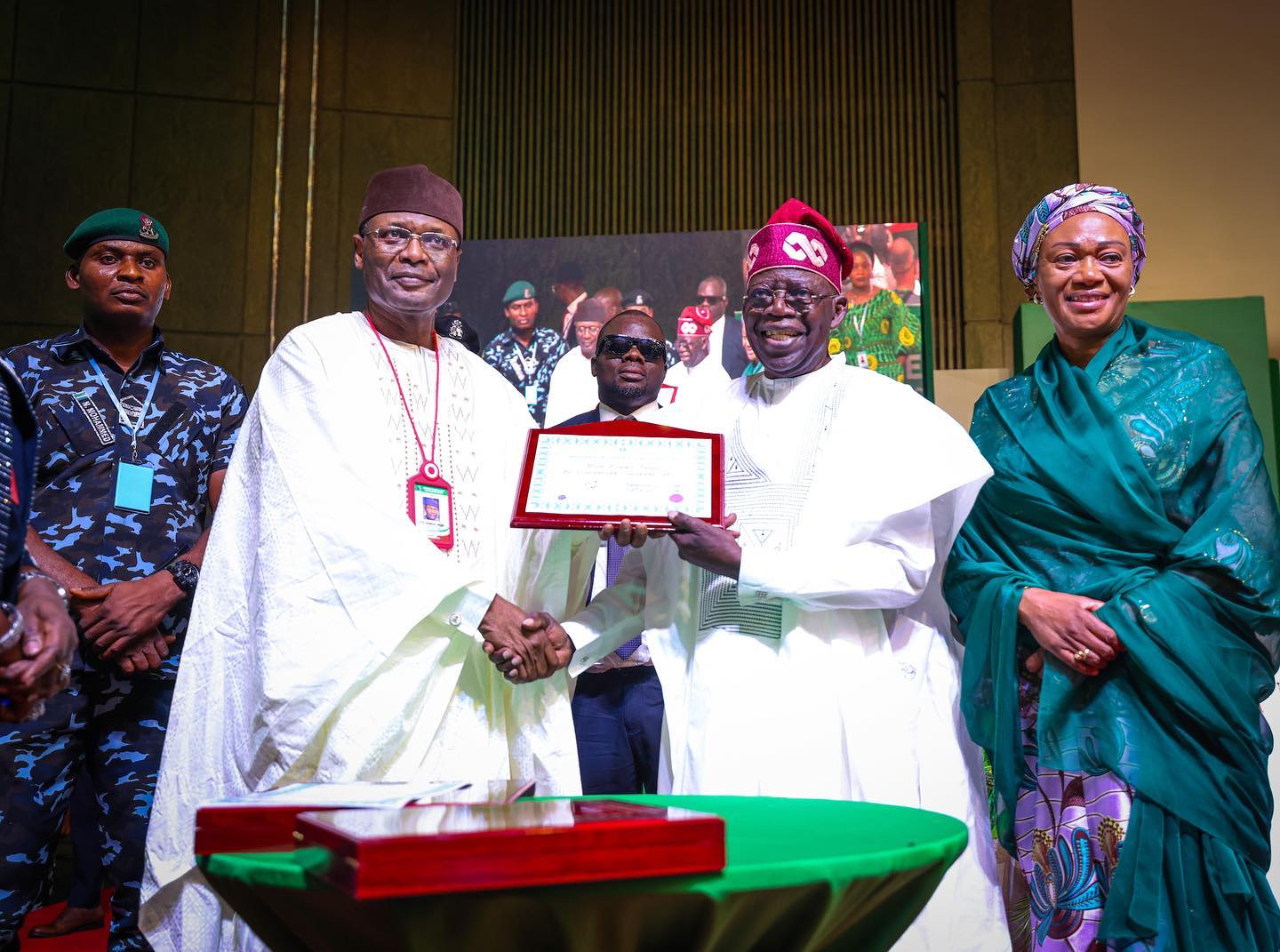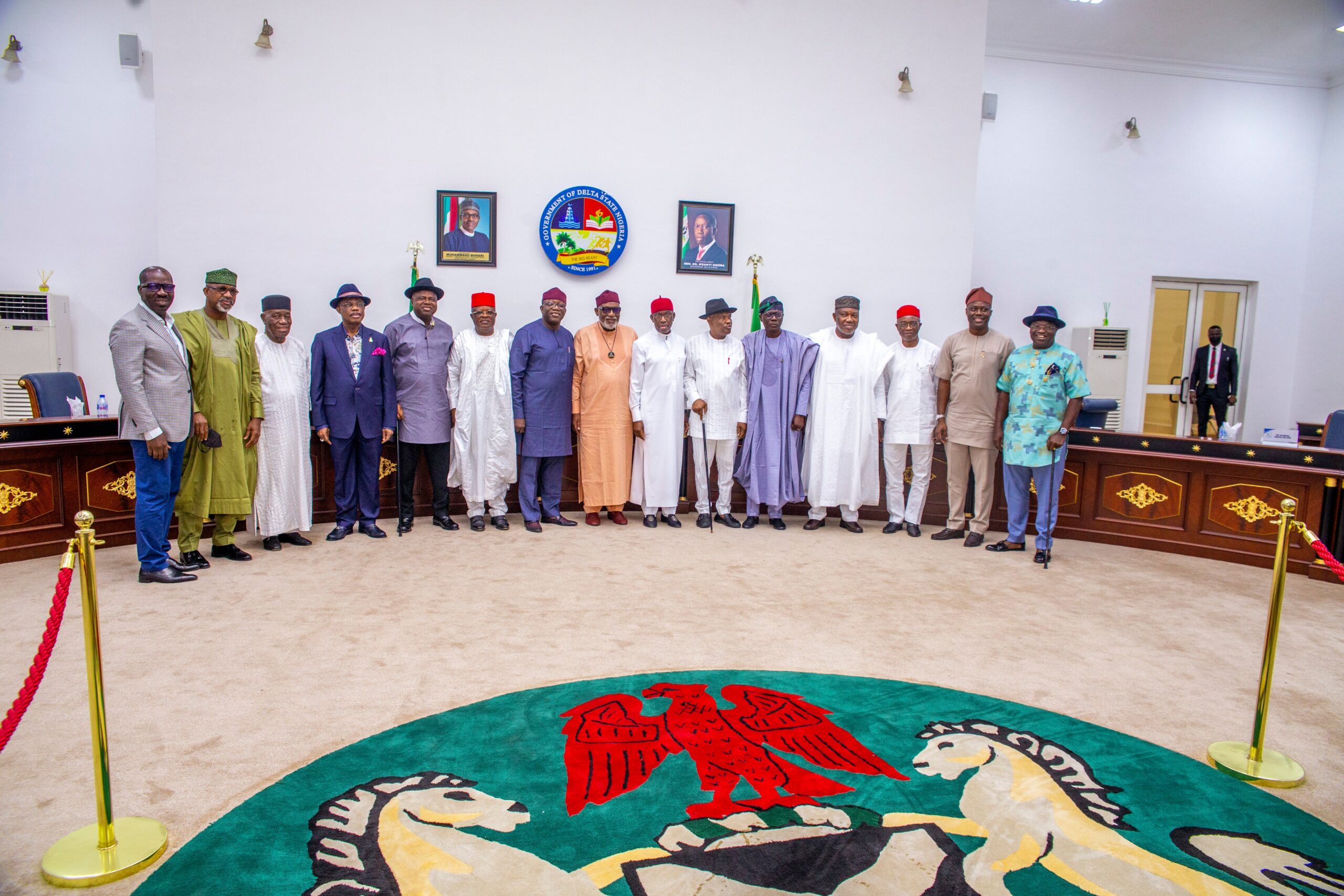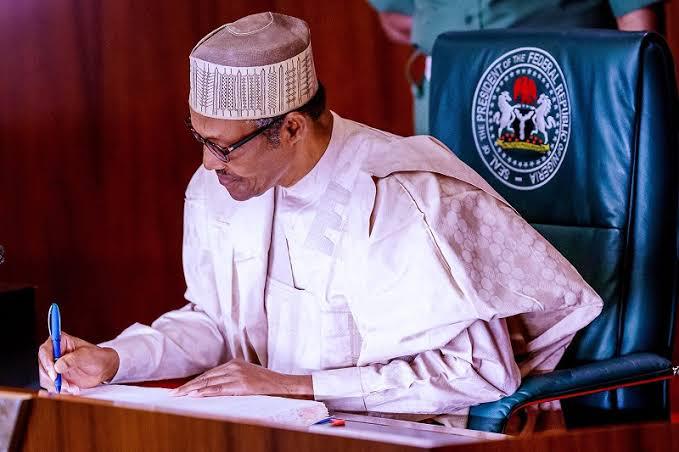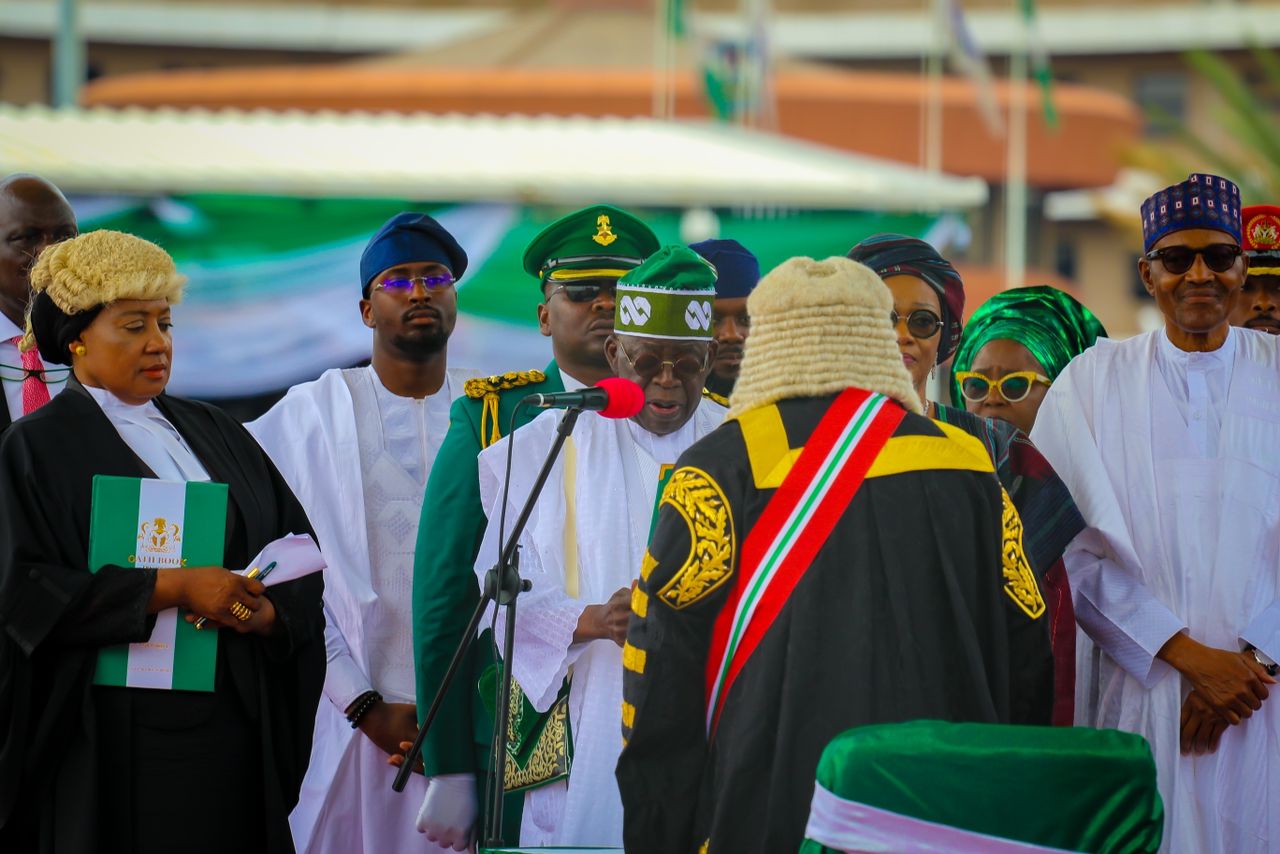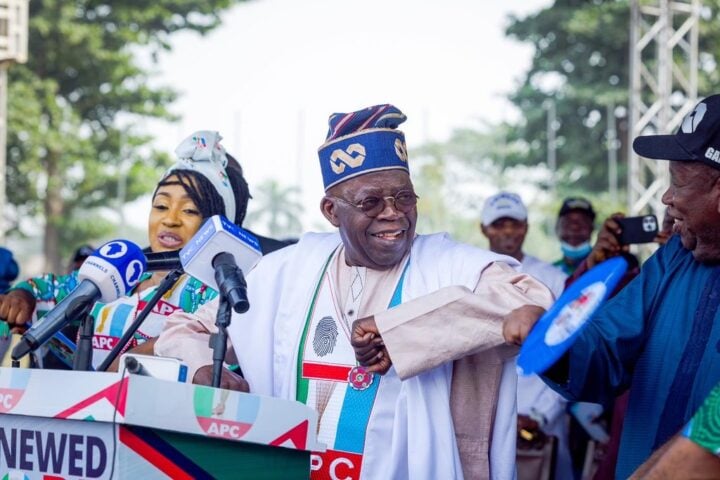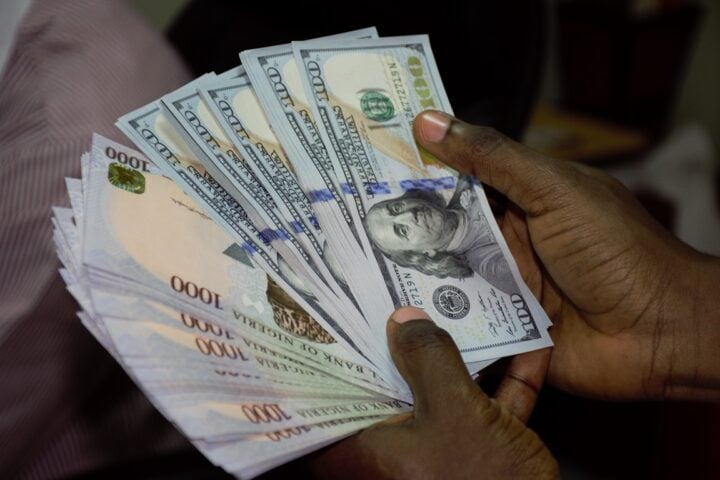President-elect Bola Tinubu may have won two key cases seeking to stop his inauguration at the supreme court, but there are more legal hurdles for him to cross.
Since Tinubu was declared the winner of the presidential election, his path to inauguration has been laced with legal battles aiming at stopping him as Nigeria’s next president.
Before the announcement of the results by the Independent National Electoral Commission (INEC), the opposition political parties – Labour Party (LP) and Peoples Democratic Party (PDP) – had called for the cancellation of the election over what they described as the failure of the commission to upload results to the results viewing portal (IReV) in real-time.
However, Mahmood Yakubu, INEC chairman, declared the former Lagos governor as the winner of the presidential election.
Advertisement
Afterwards, the opposition parties asked the court to declare Tinubu’s victory null and void, citing a number of issues as the grounds for their case.
Atiku Abubakar, candidate of the PDP, and his LP counterpart, Peter Obi, approached the presidential election petition tribunal to challenge the victory of Tinubu. Some individuals had also approached the courts with legal suits seeking to stop the inauguration of Tinubu.
But Tinubu is not new to legal battles; he had faced a number of them since the return of democratic rule in 1999.
Advertisement
Although the president-elect has succeeded in his opposition to the live broadcast of the tribunal proceedings, it is not yet Uhuru for his camp.
There are still some encumbrances he has to surmount in court.
THE DOUBLE NOMINATION SUIT
One of the legal hurdles that Tinubu surmounted was the suit bordering on the double nomination claim against Kashim Shettima, the vice president-elect.
Advertisement
The PDP had filed the suit seeking the nullification of the presidential ticket of Tinubu and Shettima on the premise that the nomination of the vice president-elect was in breach of the provisions of sections 29(1), 33, 35, and 84(1)(2) of the Electoral Act.
The opposition party alleged that Shettima was still the APC’s candidate for Borno central senatorial district when he accepted the nomination to be Tinubu’s running mate.
On Friday, a five-man panel of the supreme court dismissed the PDP’s suit while describing the party as a “nosy busybody” that was peeping into the affairs of another party.
ALLEGED PERJURY ON AGE, DUAL CITIZENSHIP SUIT
Advertisement
Another legal obstacle that Tinubu has successfully overcome is the lawsuit alleging false age declaration and dual citizenship.
Three plaintiffs — Praise Isaiah, Paul Audu and Anongu Moses — had approached the court with a suit alleging that the president-elect lied on oath in the form EC9 that he was not a citizen of another country.
Advertisement
The plaintiffs alleged that the APC candidate lied about his age, which they said was in gross violation of Section 117 of the Criminal Code Act as well as Section 156 of the Penal Code Act.
The plaintiffs prayed the court to order that Tinubu be arrested, detained and prevented from being sworn in, pending the determination of cases before the presidential election petition court.
Advertisement
In his ruling on Friday, James Omotosho, presiding judge at the federal high court in Abuja, dismissed the suit for being “unconstitutional, frivolous and vexatious” and awarded a cost of N10 million in Tinubu’s favour, and N5 million in favour of the APC to be paid by the plaintiffs.
ELECTRONIC TRANSMISSION OF RESULTS
Advertisement
INEC’s failure to immediately upload the presidential election results is still a bone of contention.
One of the grounds on which Atiku and PDP are challenging Tinubu’s victory is that INEC did not comply with the Electoral Act of 2022 and its guidelines on the electronic transmission of election results.
The decision of the supreme court in the case of Gboyega Oyetola versus Ademola Adeleke may have put this legal argument to rest.
While delivering judgment in the appeal filed by Oyetola, APC governorship candidate in Osun, the apex court ruled that there is no law that mandates presiding officers to transmit by bimodal voter accreditation system (BVAS) the number of accredited voters or accreditation of the polls to the database or backend server of INEC.
The ruling means that INEC is not bound to transit results electronically.
On January 23, a federal high court in Abuja dismissed a suit filed by LP seeking to compel the INEC to adopt an electronic method for transmitting 2023 election results.
25 PERCENT OF VOTES CAST IN FCT
In the coming days, the inability of Tinubu to secure 25 percent of the total votes cast in the federal capital territory (FCT) will be debated at the tribunal.
After the declaration of the results in FCT, Obi scored the highest votes with 281,717, Tinubu got 90,902 votes, while Atiku came a distant third with 74,199 votes. With the results, only the LP candidate garnered 25 percent of the votes cast in the FCT.
In their petitions, both Atiku and Obi are seeking the nullification of Tinubu’s victory over the matter.
Their argument is hinged on the provision of Section 134 (2) of the 1999 constitution (as amended).
Section 134 (2) says: “A candidate for an election to the office of President shall be deemed to have been duly elected where, there being more than two candidates for the election: (a) he has the highest number of votes cast at the election; and (b) he has not less than one-quarter of the votes cast at the election in each of at least two-thirds of all the States in the Federation and the Federal Capital Territory, Abuja.”
Despite securing 25 percent in 30 states of the federation, the opposition believes that INEC should not have declared Tinubu the winner of the election because he did not get the required number of votes cast in the FCT.
As a result, five residents of FCT approached the federal high court in Abuja with a suit seeking to halt the May 29 inauguration, saying the president-elect did not secure the “constitutional requirement of 25 percent total votes cast in FCT”.
However, supporters of Tinubu have argued that the constitution recognises FCT as one of the states of the federation, hence, there is no need for the APC candidate to secure 25 percent in the FCT.
Meanwhile, INEC had said a candidate must not secure 25 percent of the votes in the FCT to be declared winner because Abuja was not accorded any special status in the constitution as being “erroneously” portrayed.
ALLEGED MANIPULATION OF RESULTS, OVERVOTING
Obi and Atiku are challenging the results declared in polling units in some states on the basis of alleged manipulation, overvoting, suppression of votes, mutilations, cancellations and overwriting on result sheets, and manipulation of BVAS machines, among other alleged infractions.
In his petition, Obi claimed that he was “disfavoured” in the results declared by INEC and that there was overvoting in polling units in some states.
Atiku, on his part, accused the electoral umpire of “deliberating managing” votes in some polling units in favour of the APC.
The tribunal will decide if the alleged infractions cited by the petitioners are enough reasons to overturn Tinubu’s victory.
ALLEGED DRUG CONVICTION
This is arguably the biggest legal hurdle threatening Tinubu’s victory. Close watchers of the proceedings at the tribunal are keen to know how the matter will be decided.
In Tinubu’s political journey, he has carried the baggage of an alleged drug conviction in the USA. Both the PDP and LP are banking on the allegation to upturn his victory in the presidential election.
In their petitions, Obi and Atiku argued that Tinubu was not qualified to contest the election owing to the payment of “a fine of $460,000 for an offence involving dishonesty, namely narcotics trafficking imposed by the United States District Court” on him in 1993.
The tribunal will determine whether the forfeiture of the funds amounts to a criminal conviction for drug trafficking.
Add a comment
